John Crumlish – CEO, Galway International Arts Festival.
John is CEO of the Galway International Arts Festival, and Chairperson of the Galway 2020 Steering Committee
More from...
Can you tell us a bit about how you've gotten to where you are today?
I came to college in Galway and did psychology in the early 80s, then went back up to the North to Derry to do a post-grad, and taught psychology there. But I never quite got Galway out of my system, so I came back and got involved in the Arts Festival, and joined a band - The Sleepwalkers. My first job with the Arts Festival was as a volunteer; I ended up as production manager with the festival in the 90s. Then I got involved with Macnas, and after some time formed a company within Macnas called Mac Teo, where we did some corporate stuff. I returned to the Galway Arts Festival as CEO in 2003.
Why did you get involved with the Arts Festival to begin with? What was it that appealed to you?
I volunteered initially. Macnas were stuck at the time; they were doing Gulliver, and a friend of mine, Pearse Doherty, who was a bass player with the Saw Doctors, asked myself and Declan Gibbons who runs the film centre, if we'd help out. The scale, the level of ambition and the insanity of trying to float an 80 foot man...he was just gorgeously insane at the time. But to pull it off, and they did. And everyone went with it. Bit by bit, Galway was utterly seduced by the Arts, from Els Comediants on through to Macnas. Royal de Luxe did a show for the Arts Festival in the cathedral carpark called the ‘Brief History of France' - it was an amazing show and it was free. I remember thinking, 'What a way to make a living'. It was just the best fun ever.
So during the 90s, I was still in the band, and I was working for the festival and for Macnas. At that time, everybody was moving over and back. It was a very vibrant scene; you had The Stunning, The Saw Doctors, you had Little Fish. Everybody was at some point either working with the festival or Macnas. It really was a town of ‘anything is possible'. Druid made the first big statement, but I'd say the Arts Festival and subsequently Macnas all made the statement that everything and anything was possible. And I think that was a big attraction for a lot of people who came to Galway - it's really a town of blow-ins.
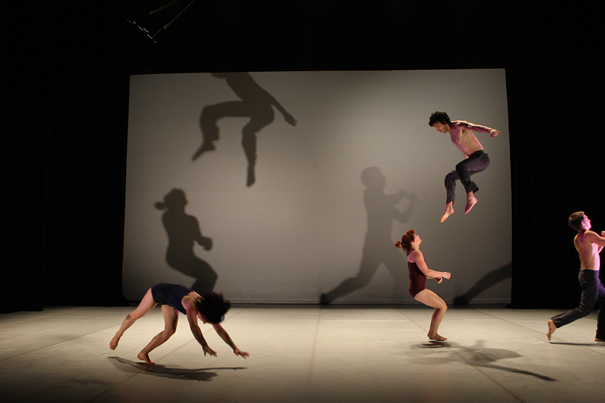
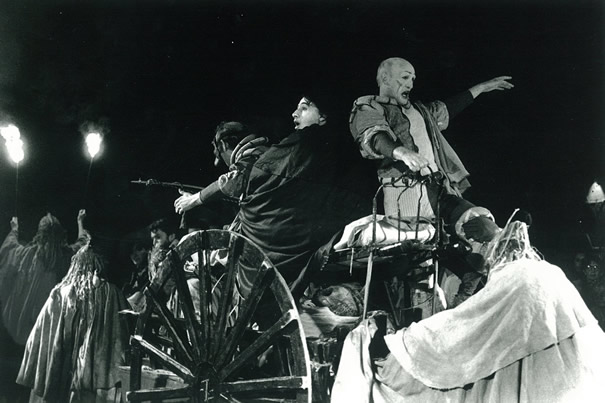
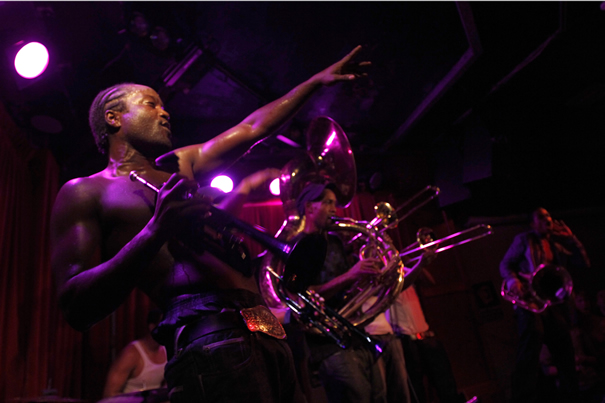
"We had 180,000 attendants last year. There's not many festivals where nearly two and a half times as many people come to your festival as live in your city."
What's it like being CEO of the Galway International Arts Festival?
Well, the role has changed significantly; a big turning point was when we started to produce our own work and do our own shows. That was a big change, so we're more year-round in a sense. We're touring alot of productions that we've done, which has also allowed us to network outside Galway. In 2014, just before St Patrick's Day, Riverrun did the National Theatre in London, and then we flew from London to Chicago for the opening of Chapatti - they were two shows that we were co-producers on. Chapatti stayed for six weeks in Chicago, then we came back and Ballyturk opened the Galway Arts Festival, Riverrun went to Edinburgh, Ballyturk did Dublin, Cork, the National Theatre, Riverrun went to BAM in New York. That year finished with us being in Australia around St Patrick's weekend for the start of Riverrun's 5-week run in Sydney Opera, and festivals in between.
Are you proud of how far the festival has come?
We had 180,000 attendants last year. There's not many festivals where almost two and a half times as many people come to your festival as live in your city. It's a sizable thing. But it's not just me - there's a team that do it. Everybody plays a role in that and yeah, I'm proud of it but it's a city-wide thing. And there's a great sense of public ownership of the festival in Galway. People always ask each other if they're going to the festival - that kind of marketing from people to everybody else is brilliant; you couldn't buy that. If you are under 30 years of age in Galway, you really have grown up with the festival having had a big impact.
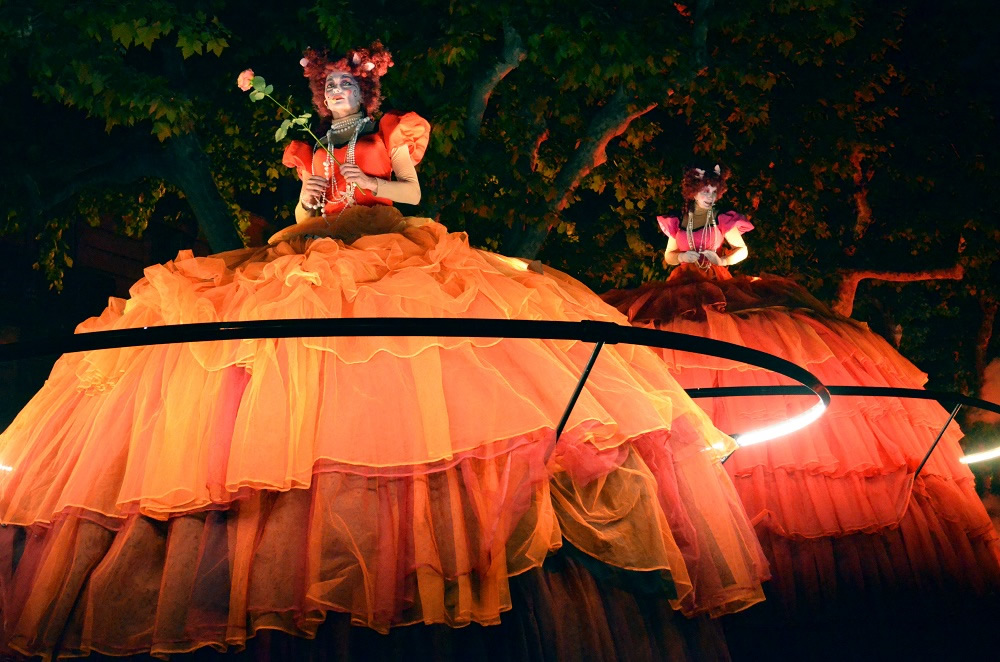
Do you ever sit back, and take the romantic view, of ‘wow, look how far we've come'?
That's for another day. I think you always have to be looking at what's next, what's possible, what's feasible. We're moving through a phase at the moment of what's possible, and I think people see that with this year's festival, that different things are possible. We're very informed as well by the Capital of Culture and what's happening there. We're very much supportive of what's happening and why we're doing some things is directly related to the bid itself, so I think that you're always pushing. Ultimately, you have to want to be the best; you have to be relevant and I think you can never be relevant enough. If you were here 30 years ago, what you thought was an extraordinary experience then compared to what the festival offers now are two very different things, so this year's extraordinary is next year's ordinary. We get a lot of repeat visitors and you always get immediate feedback, so that kind of ownership always means that you will continually be pushed.
What you're after is somebody who has been influenced by it and who'll come back. Then, ultimately you want to turn audience members into people who want to be on stage. The perfect example is Cathy Belton who used to go to the festival with her father to see lots of things; and now she's the star of our central production (Match Box). It's the perfect circle for us. Our job is just to create as much access to the arts and to provide the best possible experience to as many people as possible. We don't have to save the world, but it's a nice gig to have.
How does art and culture influence your daily life?
It's my business. There is no sacrifice for me; I'm doing exactly what I want to do, and I get up in the morning and I'm allowed to think about this until I go to sleep. I can dream about it if I want - it doesn't matter. It's a very privileged position to be in, to be doing something you really like. It's no job really for a grown up to be discussing where a giant whale is going to take off from. That was a meeting had recently. I was sitting there with a bunch of highly skilled, highly experienced people talking about what time we thought the whale was going to take off...
What drives you?
I would say I'm enthusiastic rather than driven.
You must be driven...you're at the top of an organisation that's as big and influential as the Galway International Arts Festival.
To be honest, it was always easy for me. This job is just an interesting thing to do and if you work on the idea that you get one run around the merry-go-round, you seriously need to do something that you enjoy. Life is way too short. David Bowie was once asked why he was successful and he said, right place right time and about 10 per cent work. I was footloose and fancy free at the right time. My wife was about to have our third child, I was with Mac Teo doing a lot of travelling and my wife was as well and I thought, one of us should really slow down. And it was that simple. When the Arts Festival job came up, I thought, If I was going to slow down, this is the type of job I'd like to do. And that was that.
"Ultimately, you have to want to be the best; you have to be relevant and I think you can never be relevant enough."
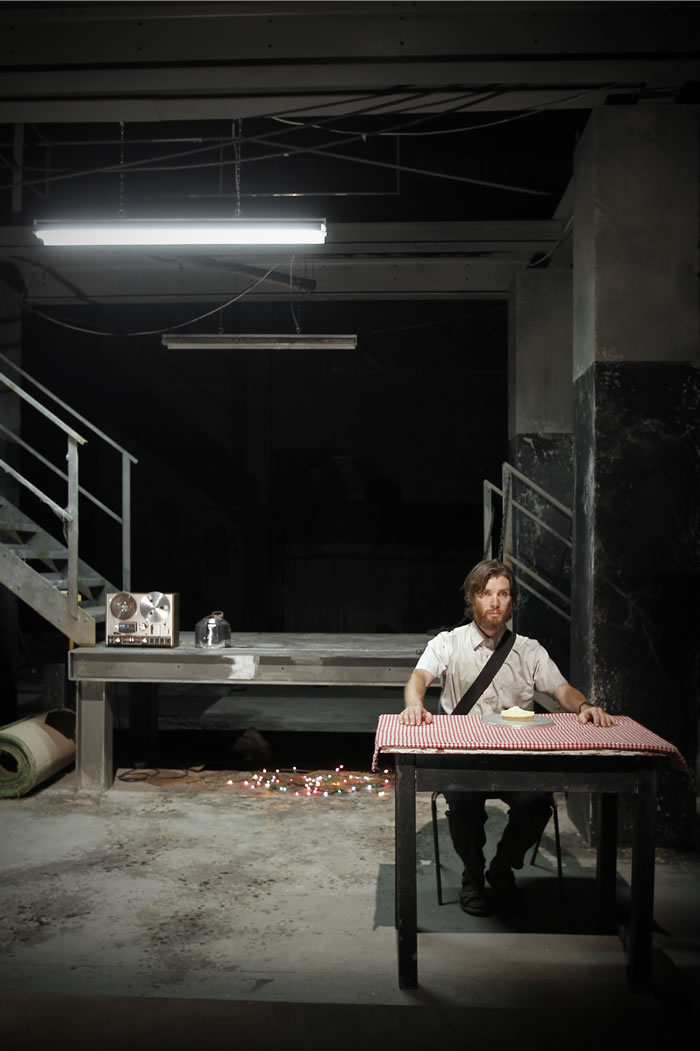
Do you still get that buzz that you used to?
Do you know what's great? I no longer dance on the chest of 80 foot-long men, but there are moments you have to pinch yourself. I remember sitting at the opening night of Ballyturk in London and the whole run is sold out - the lights come up and you just see Cillian Murphy's head at the very start of it and I just thought, ‘Wow'. You have to pinch yourself; you're sitting in the National Theatre in London, Misterman opening in New York, you just sit back and go, what happened? So that's lovely. Or, at the very first reading of Ballyturk. Or the reading of Matchbox. Then it's all about possibilities and the excitement of how it will transfer to onstage in Galway and where else it will go. Or it's sitting beside Sydney Harbour Bridge for Riverrun. It's great. You're also in the hands of really talented people - Olwen Fouéré, Frank McGuinness, Joan Sheehy, Cillian Murphy, Stephen Ray, Enda Walsh, Hugh O'Donoghue. It's genuinely lovely.
Do you work on instinct or do you think things through?
It's probably a mixture of both. I very much follow the Kenny Rogers school of philosophy which is, ‘You gotta know when to hold ‘em, you gotta know when to fold ‘em, you gotta know when to walk away'. Much like the gambler himself, sometimes you get it wrong. There's a certain amount of trust. There's a great line in Shakespeare in Love, where with the producer Jeffrey Rush, every so often there'll be a crisis, and he'll say; ‘Don't worry, it'll be alright'. At some point in the movie, someone turns around and says, ‘How do you know it's going to be alright?' and he replies, 'I don't - it just always is'. We assess the risk of everything; there's a spreadsheet attached to every single thing we do in terms of cost, risk analysis, risk assessment.
Who's your greatest influence?
I don't have one seminal influence. My parents were definitely a big influence, also my wife and her parents, who were all involved in the arts. Marvin Gaye, Morrissey, Tom Murphy, Druid, The Arts Festival, Macnas. Any artform you care to mention, and it's on-going. And I would say that Galway has been a huge influence on me - the possibilities. The sense of 'We're going to do it and we will do it'.
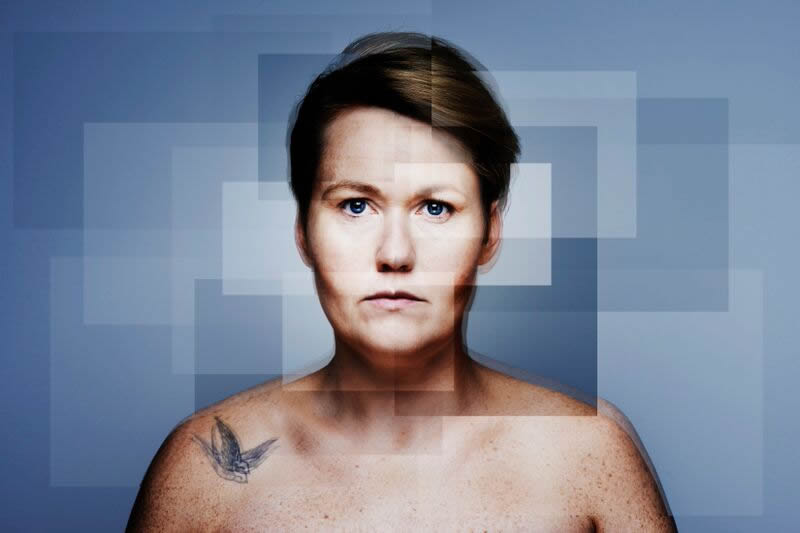
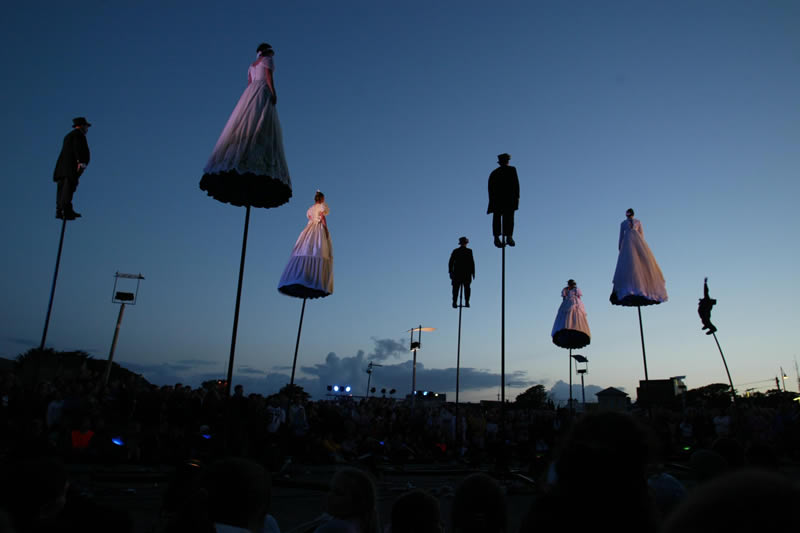
"What you're after is somebody who has been influenced by it and who'll come back. Then, ultimately you want to turn audience members into people who want to be on stage."
What's so special about this town to you?
I just always felt that it was the right place. I always thought that it was done at a certain pace and in a certain way and if that suited you...It was also driven by players - the best professional theatre company in Ireland with a huge international reputation run out of a small country town in the West of Ireland. I always think people in Galway are so lucky - you get world premiere after world premier. Tom Murphy, Martin McDonagh...and on it goes. I think artists respond to Galway in a certain way and there's a certain informality and pace about Galway that suits certain things. I was in Salthill ten years ago and because of my accent, someone said to me, ‘Are you enjoying your holiday?' and I looked at them and said, ‘Most definitely'. I'm still not sick of it. I did the Tom Dunne Show recently and he said he used to love playing in Galway, that there's something about the Arts Festival. We could take all the credit, but there's something about Galway. It's the right festival, in the right place, with the right people. Ultimately, it's a fairy dust business, and sometimes you get to make fairy dust and at that point, it's worth it. Like at the end of Ballyturk last year, people were just in awe. They knew they'd been to something special.
Your favourite cultural city or place in the world?
I've probably given Galway enough credit so I must say that I adore New York. London is fantastic as well, Sydney. They have an energy about them. They're always seeking, they're always looking. They're like big monsters continually sniffing out the next thing. They're constantly on the move. New York has an energy about it and I think that's what it is; it's always looking for the secret.
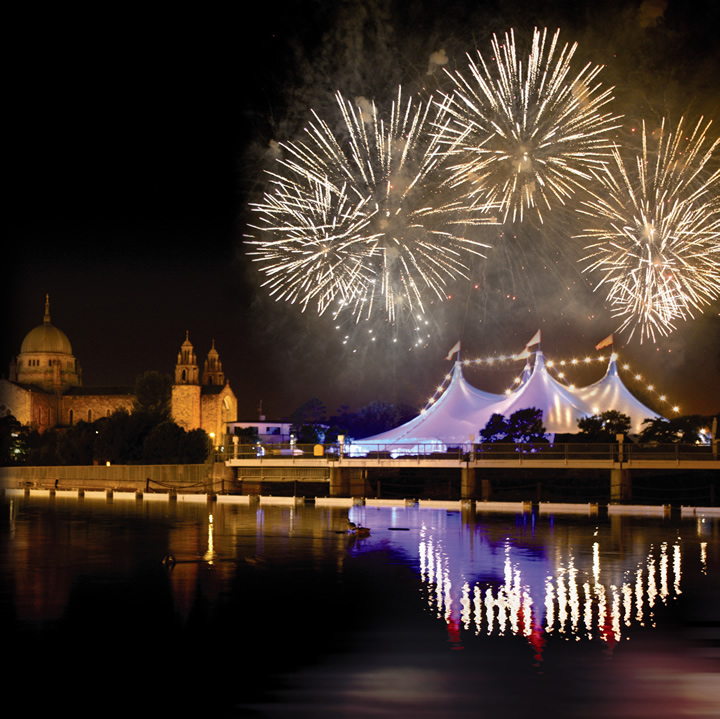
What impact do you see culture having on Galway City?
It's been a huge part of why people come, it's been a huge part of why people stay. I think that going forward, if we get the Capital of Culture bid, it will be another jump forward - culture will become even more important. Galway could be world-renowned for being a centre of culture and creative industries and that's the game you're after. If the attitude is right, and we have a great City Manager at the moment who sees it, then it's up to us collectively. Why we have the arts already in Galway is because people decided this is the way it would be - so you want the next generation to say, ‘This is what we're going to do, and we're going to run with it'. I think it's going to be unstoppable. Austin is a case in point. It started out as a music festival, and now it's a huge tech startup hub, one of the big ones. It's really important that we get this; I haven't seen an opportunity like it in my lifetime. It's exciting and it will be a catalyst for bringing on a lot of things that are outside the control of the Art's Festival and Druid, which is necessary as well.
It will also be good for design, food, sport. I think the biggest thing out of all of this is that people are now thinking about Galway's future and not in the usual ways. We deserve the chance to jump. If we walk up ten floors, Captial of Culture will allow us to get on the lift and have an easy ride to the 20th floor, then we could get off again and keep going up the stairs. Apart from tourism, the partnerships that would be formed and developed in 2020 would change the cultural landscape of Galway for good. When Els Comediants came and did what they did, there were four or five guys in the audience who thought, we should do that, and so they formed Macnas. Things will happen. It will push things on through barriers that might have stopped us previously, because it has to happen.
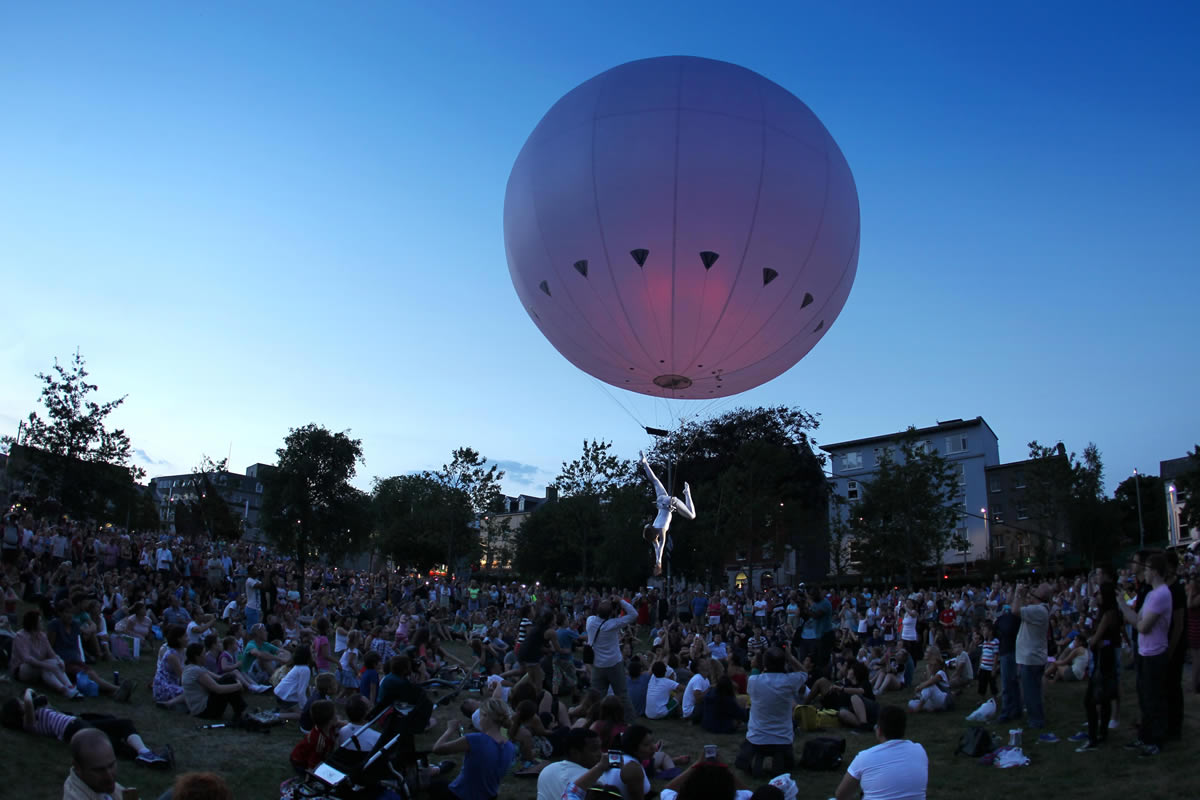
"For one year, we want everyone to be the smartest, brightest, best that they've ever been or that they're capable of. That's quite a call to arms. Why wouldn't you want to be there? I'll put it another way - where else could you be?"
What's your vision for Galway as a cultural utopia?
It should be in the position to almost float away fueled by its own ideas. You only need a couple of really good ideas to get across the line and then investment will pour in; there's always enough money out there which will follow ideas. A big factor then is it will take this stupid brain drain that we've had over the past 100 years off the West Coast. We will get the exact opposite- we'll get a brian flow in, which will be a first. All these smart people will stay, all your creative people will stay. So instead of somebody working in the design company in Boston, they'll be working in the design company in Galway.
If we get the Capital of Culture, it will be the catalyst for our cultural utopia. It will mean we're on the field and we'll be selling our wares to 26 countries for a start, and that shopfront only comes around every 12 to 20 years. If we get this designation, it's up to us what we do with it. It will be up to us to design our own future with regards to what we want to see happen next in Galway. If we do get it, our first job will be to say to everybody - we want your best ideas, and we want the ideas you haven't thought of yet. The madder, the bigger, the better - that suits us. This is all about all the unknown unknowns that can emerge. At which point it could be the best way of harvesting the best people ever in Galway. It has that ability to deliver that which we just haven't twigged yet. Everybody will have to be at their best to pull it off, and that's an amazing opportunity. You won't see that again. For one year, we want everyone to be the smartest, brightest, best that they've ever been or that they're capable of. That's quite a call to arms. Why wouldn't you want to be there? I'll put it another way - where else could you be?
- Noeline Kavanagh - Previous
- Next - Gugai